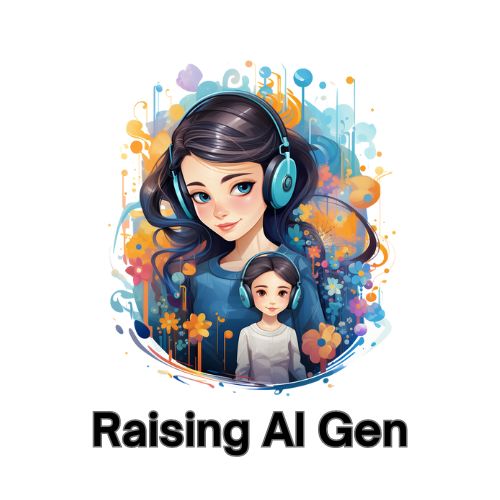The phrase “How is AI used in mental health?” opens a door to an intriguing blend of technology and human wellness. As Artificial Intelligence (AI) spirals into an era of astounding advancements, its embrace within the mental health sphere is nothing short of revolutionary. This integration is not just a tale of codes and algorithms, but a narrative filled with hope, understanding, and the promise of better mental health management. Through the lens of AI, we now gaze at a horizon where understanding and treating mental health issues could become more precise, personalized, and accessible. This article embarks on a journey to unravel the diverse roles AI plays in mental health, from the early prediction of disorders to crafting personalized treatment plans, and extending a helping hand through virtual platforms.
Quick Takes
Section Key Takeaways Predicting Mental Health Disorders AI’s capability in foreseeing mental health issues using data analytics. Diagnosis and Personalized Treatment Planning AI’s accuracy in diagnosis and creating tailored treatment plans. Real-Time Monitoring and Support Real-time assistance and monitoring through AI-powered platforms. Self-Help AI Solutions Virtual therapists and chatbots for immediate help. Enhanced Therapist Training Upskilling therapists through AI-driven training modules. Deepening Understanding of Mental Disorders AI’s role in unearthing complex insights into mental disorders. The Future of AI in Mental Health Future prospects of AI in advancing mental health solutions.
As we venture further, each section will unfold the intricate ways AI intertwines with mental health, showcasing the potential to not only transform lives but also the entire mental health landscape.
Predicting Mental Health Disorders
The foresight into potential mental health issues is a groundbreaking stride in healthcare. AI, with its sophisticated algorithms and data crunching capabilities, stands at the forefront of this endeavor. By analyzing a plethora of data, AI ventures into a realm of predictions that were once thought to be far beyond reach.
Data Analytics and Machine Learning
The core of prediction lies in the ability to analyze vast amounts of data swiftly and accurately. Here’s how AI accomplishes this feat:
- Data Collection: Gathering data from a myriad of sources including medical records, social media activity, and even wearable device metrics.
- Data Processing: Sorting through the collected data to identify relevant information.
- Pattern Recognition: Utilizing machine learning to identify patterns that may signify a mental health condition.
- Predictive Modeling: Creating models to predict the likelihood of a mental health issue based on identified patterns.
In a study referenced in the article “Is There an AI for Mental Health?”, the predictive capabilities of AI were spotlighted, showcasing how early identification of mental health conditions can pave the way for timely interventions.
The Significance of Early Prediction
Early prediction is not just about diagnosing a condition; it’s about timely intervention, which could be a game-changer in someone’s life. The earlier a mental health issue is identified, the sooner an individual can begin to receive the necessary support and treatment. This proactive approach can significantly lessen the burden on both the individuals affected and the healthcare system as a whole.
The Challenges and Ethical Considerations
While the predictive prowess of AI is a monumental advancement, it also brings forth a set of challenges and ethical considerations:
- Accuracy: Ensuring the accuracy of predictions to avoid misdiagnosis.
- Privacy: Safeguarding the privacy of individuals whose data is being utilized.
- Consent: Obtaining informed consent from individuals for using their data.
- Bias: Avoiding biases that may arise from skewed or incomplete data.
The intersection of AI and mental health is a burgeoning domain with the promise of transforming lives. Yet, it also calls for a careful and ethical approach to ensure the benefits are reaped while minimizing potential drawbacks.
Diagnosis and Personalized Treatment Planning
The era of personalized medicine has dawned, and AI is the torchbearer. When it comes to mental health, the one-size-fits-all approach is fading into obsolescence, making way for tailored treatment plans designed to cater to the individual needs of each patient. AI is at the helm, facilitating a more nuanced understanding and approach towards diagnosing and treating mental health conditions.
Enhancing Diagnostic Accuracy
AI’s prowess in enhancing diagnostic accuracy is a cornerstone in mental health care. By analyzing a multitude of data sources, AI aids in:
- Identifying Biomarkers: Pinpointing biomarkers through analysis of genetic tests, brain imaging, and other data.
- Symptom Analysis: Evaluating symptoms and their patterns over time.
- Comparative Analysis: Comparing individual data with broader datasets to identify anomalies or common patterns.
Personalized Treatment Planning
The journey from diagnosis to treatment planning is a critical pathway. Personalized treatment planning, facilitated by AI, is a beacon of hope. It’s about charting a course of treatment that resonates with the individual circumstances of each patient. Here’s how AI is making a significant impact:
- Treatment Optimization: Utilizing AI to identify the most effective treatment modalities for each individual.
- Progress Monitoring: Employing AI tools to monitor the progress of treatment in real-time, adapting the plan as necessary.
- Outcome Prediction: Predicting the likely outcomes of different treatment protocols to optimize the treatment plan further.
In the article “Is There an AI for Mental Health?”, the nuances of AI in formulating personalized treatment plans have been elucidated, reflecting the profound impact AI has on the therapeutic landscape.
The Role of AI in Therapist Training
With the advent of AI, therapist training has transcended traditional boundaries. AI-driven training modules offer:
- Realistic Simulations: Providing therapists with realistic simulations to enhance their skills.
- Feedback Mechanisms: Offering instant feedback to help therapists improve their techniques.
- Access to a Wealth of Knowledge: Facilitating access to up-to-date information and best practices in the field.
Bridging the Gap Between Patients and Therapists
AI is not just a tool; it’s a bridge fostering a deeper connection between patients and therapists. Through AI-powered platforms, a continuous dialogue can be maintained, ensuring that the treatment plan remains on the right trajectory, adapting as necessary to meet the evolving needs of the patient.
Ethical Considerations
As we tread the path of AI in mental health, ethical considerations remain paramount:
- Data Privacy: Ensuring the confidentiality and security of patient data.
- Informed Consent: Obtaining informed consent for the use of personal data.
- Bias Mitigation: Working diligently to mitigate any biases in AI algorithms and ensuring equitable care for all.
The marriage of AI and personalized treatment planning is a narrative of hope, precision, and a profound understanding of individual intricacies in mental health care. Through careful and ethical implementation, the promise of AI in revolutionizing mental health care is a horizon we are fast approaching.
Real-Time Monitoring and Support
In a world where mental health concerns are escalating, the necessity for real-time monitoring and support is paramount. Artificial Intelligence (AI) is stepping into this critical arena, offering a scaffold of support that operates beyond the traditional boundaries of time and space.
AI-Powered Platforms
The advent of AI-powered platforms heralds a new epoch in mental health care, providing a continuum of support that is accessible anytime, anywhere. These platforms encompass:
- Chatbots and Virtual Therapists: Offering instant support, answering queries, and providing coping strategies.
- Monitoring Apps: Tracking mood changes, sleep patterns, and other relevant metrics in real-time.
- Online Therapy Sessions: Facilitating online interactions with therapists, making mental health care accessible even from remote locations.
Through the narrative on “Is There an AI for Mental Health?”, the myriad ways in which AI-powered platforms are being leveraged for real-time support and monitoring are vividly portrayed.
| Criteria | Traditional Mental Health Support Systems | AI-Powered Platforms |
|---|---|---|
| Availability | Business hours | 24/7 |
| Response Time | Varies (Minutes to hours) | Immediate |
| Accessibility | In-person or over the phone | Any device with internet |
| Cost | Generally higher | Often lower or free |
| Customization | Case-by-case | Algorithmic personalization |
| Anonymity | Limited | High |
| Scalability | Limited by human resources | Highly scalable |
| Expertise | Human experts | AI-based (varies in expertise) |
| Emotional Connection | Higher | Lower |
| Data Security | HIPAA compliant | Varies |
Ecological Momentary Assessments (EMAs) and Interventions (EMIs)
In an effort to provide dynamic support, AI integrates Ecological Momentary Assessments (EMAs) and Ecological Momentary Interventions (EMIs). Here’s how they contribute:
- Real-Time Data Collection: Capturing data on an individual’s mood, thoughts, and behaviors in real-time.
- Instant Feedback: Providing immediate feedback and coping strategies based on the assessed data.
- Adaptive Interventions: Adapting interventions based on the evolving needs of the individual.
Enhancing Accessibility and Reducing Stigma
AI’s endeavor in real-time monitoring and support is a beacon of hope in reducing the stigma associated with seeking mental health support. By providing:
- Anonymity: Offering a platform for individuals to seek help anonymously, reducing the fear of judgment.
- Accessibility: Ensuring mental health support is accessible, overcoming geographical and time constraints.
- Affordability: Reducing the cost of mental health care by providing online support.
Future Prospects
The marriage between AI and real-time monitoring is in its infancy, yet the prospects are exhilarating:
- Continuous Support: Envision a future where support is available 24/7, adapting in real-time to the needs of the individual.
- Community Building: Creating online communities where individuals can share their experiences and support each other.
- Enhanced Therapist Interaction: Facilitating more meaningful interactions between therapists and patients through AI-driven insights.
The realm of real-time monitoring and support through AI is a testament to how technology can be harnessed to foster mental well-being. As we delve deeper into this synergy, the promise of a more supportive and understanding world looms on the horizon, bringing a new dawn in mental health care.
Self-Help AI Solutions
The paradigm of mental health care is shifting towards a more proactive and accessible model. Self-help AI solutions are at the forefront of this transformation, offering individuals the tools to take charge of their mental well-being.
Chatbots and Virtual Therapists
In an increasingly digital world, the emergence of AI-driven chatbots and virtual therapists is a boon. These virtual companions offer:
- Immediate Assistance: Providing instant responses to queries and concerns.
- Therapeutic Conversations: Engaging in dialogues based on cognitive-behavioral principles to help manage stress, anxiety, and other issues.
- Accessibility: Being available round-the-clock for anyone in need.
Wellness Apps and Platforms
Wellness apps and platforms leveraging AI technologies have proliferated, offering a plethora of self-help tools:
- Mood Tracking: Allowing individuals to track their mood, identify triggers, and monitor progress over time.
- Mindfulness and Relaxation: Offering guided meditation, breathing exercises, and relaxation techniques.
- Community Support: Creating a platform for individuals to share experiences and offer support to each other.
Learning and Growth
AI doesn’t just provide a band-aid solution but aims at fostering learning and growth:
- Educational Resources: Providing resources to educate individuals about mental health conditions, treatments, and coping strategies.
- Skill Development: Offering tools to develop coping skills and resilience.
- Personal Insight: Encouraging self-reflection and insight into one’s own mental health.
Ethical Considerations
The influx of self-help AI solutions also beckons a careful consideration of ethical dimensions:
- Accuracy of Information: Ensuring the information provided is accurate and evidence-based.
- Privacy and Data Security: Safeguarding the privacy of user data.
- Accessibility: Ensuring these tools are accessible to all, regardless of socioeconomic status.
The Road Ahead
The synergy between AI and self-help solutions in mental health care is a budding narrative filled with potential. As advancements in AI continue to burgeon, the horizon of self-help solutions expands, promising a more empowered and proactive approach to managing mental health. Through meticulous development and ethical considerations, the potential of self-help AI solutions in fostering a culture of proactive mental health management is boundless.
Enhanced Therapist Training
The fusion of Artificial Intelligence (AI) with therapist training is akin to adding rocket fuel to an already robust engine. As mental health care navigates towards more effective and individualized treatment plans, the role of a well-trained therapist is pivotal. AI steps in as a powerful ally, enriching the training process with data-driven insights and realistic simulation environments.
Realistic Simulations
One of the hallmarks of AI in therapist training is the provision of realistic simulations:
- Virtual Reality (VR): Creating immersive VR scenarios to simulate real-life situations therapists might encounter.
- Interactive Simulations: Offering interactive scenarios where therapists can practice different approaches and receive instant feedback.
- Diverse Scenarios: Providing a wide array of scenarios encompassing different mental health conditions and situations.
These simulations equip therapists with the hands-on experience necessary to handle diverse and complex situations they might face in their practice.
| Type of Simulation | Description | Benefits |
|---|---|---|
| Virtual Reality (VR) | Creates immersive 3D environments that mimic real-world scenarios therapists may encounter. | – Provides a safe, controlled setting for therapists to practice skills. – Enhances the realism of training scenarios. – Allows for exposure to a wide range of mental health situations. |
| Interactive Simulations | Offers interactive scenarios where therapists can interact with virtual patients and receive real-time feedback. | – Enables hands-on learning and immediate feedback. – Encourages experimentation with different therapeutic approaches. – Promotes confidence and competence in handling real-life situations. |
| Diverse Scenarios | Provides a variety of scenarios encompassing different mental health conditions and patient profiles. | – Exposes therapists to the breadth of potential cases they may encounter. – Enhances understanding and adaptability to different mental health conditions. – Promotes a more inclusive and comprehensive training experience. |
Feedback Mechanisms
Feedback is the cornerstone of improvement, and AI facilitates a robust feedback mechanism:
- Instant Feedback: Providing immediate feedback on the therapist’s performance in simulations.
- Performance Tracking: Monitoring the therapist’s progress over time, identifying areas of strength and those needing improvement.
- Peer Comparison: Offering a comparison with peer performance to foster a competitive learning environment.
Access to a Wealth of Knowledge
In the digital age, having access to a wealth of knowledge is a boon:
- Up-to-Date Resources: Access to the latest research, treatment modalities, and best practices in the field.
- Expert Insights: Bringing in expert opinions and insights through AI-powered platforms.
- Continuous Learning: Encouraging a culture of continuous learning and improvement among therapists.
The Broader Impact
The ripple effect of enhanced therapist training is profound:
- Improved Patient Outcomes: Better-trained therapists contribute to improved patient outcomes.
- Elevated Standard of Care: Raising the standard of care across the mental health field.
- Community Impact: Creating a positive impact in the community by providing high-quality mental health care.
Future Horizons
As AI continues to evolve, the scope of its application in therapist training is bound to expand:
- Automated Assessments: Utilizing AI for automated assessments to gauge the competency of therapists.
- Global Training Platforms: Creating global training platforms to standardize the quality of therapist training worldwide.
- Interdisciplinary Training: Facilitating interdisciplinary training to foster a holistic approach to mental health care.
The amalgamation of AI with therapist training is a narrative of empowerment, excellence, and elevated care. As we venture further into this synergy, the promise of a more effective, holistic, and high-quality mental health care looms large, beckoning a future filled with hope and healing.
Deepening Understanding of Mental Disorders
The quest to unravel the mysteries of the mind is an ongoing endeavor. With the advent of Artificial Intelligence (AI), the exploration has delved deeper, shedding light on the intricacies of mental disorders. AI, with its computational prowess, is facilitating a more profound understanding that is crucial for better diagnosis, treatment, and stigma reduction.
Data Analysis and Neural Networks
At the heart of AI’s capability to deepen our understanding of mental disorders is its data analysis and neural network algorithms. These technologies enable:
- Complex Pattern Recognition: Identifying patterns in data that may elude the human eye, aiding in the understanding of mental disorders.
- Predictive Analytics: Predicting the likelihood of mental disorders based on a variety of factors.
- Deep Learning: Utilizing neural networks to delve into vast amounts of data to unearth new insights.
Genome-Wide Association Studies (GWAS)
Genome-Wide Association Studies (GWAS) are a testament to how AI is revolutionizing our understanding of the genetic underpinnings of mental disorders. Through AI, researchers can:
- Analyze Massive Datasets: Analyzing vast datasets of genetic information to identify associations between genetic markers and mental disorders.
- Identify Genetic Risks: Pinpointing genetic risk factors that contribute to the onset of mental disorders.
- Enhance Predictive Models: Improving predictive models to identify individuals at risk of developing mental disorders.
Neuroimaging and AI
The fusion of neuroimaging with AI is like opening a new window to view the intricacies of the brain. This synergy allows for:
- Enhanced Imaging Analysis: Utilizing AI to analyze neuroimaging data with higher precision.
- Identifying Biomarkers: Discovering biomarkers associated with mental disorders.
- Understanding Brain Function: Gaining insights into how different regions of the brain are associated with mental disorders.
Ethical Considerations
The expedition to deepen our understanding of mental disorders through AI is exhilarating, yet it comes with ethical considerations:
- Data Privacy: Ensuring the privacy and confidentiality of individuals’ data.
- Consent: Obtaining informed consent from individuals whose data is being used for research.
- Bias Mitigation: Addressing biases that may arise from skewed data or biased algorithms.
Looking Ahead
As we stand on the cusp of new discoveries, the horizon is filled with promise:
- Holistic Understanding: Moving towards a more holistic understanding of mental disorders.
- Interdisciplinary Collaboration: Fostering collaboration between AI experts, clinicians, and researchers to drive forward the understanding of mental health.
- Reducing Stigma: As understanding deepens, the hope is to reduce the stigma associated with mental disorders, fostering a more compassionate and empathetic society.
The melding of AI with the quest to deepen understanding of mental disorders is a narrative filled with hope and potential. As each layer of understanding is unveiled, the pathway towards better mental health care becomes clearer, beckoning a future where empathy, understanding, and effective care are the hallmarks of mental health management.
The Future of AI in Mental Health
The nexus between Artificial Intelligence (AI) and mental health is an exhilarating frontier. As we stand at the cusp of groundbreaking discoveries and innovations, the horizon is laden with promise. However, the journey forward is not without challenges, and the road must be navigated with caution, ethical diligence, and a collaborative spirit.
Advancements in Diagnosis and Treatment
The realm of diagnosis and treatment is poised for significant advancements with the aid of AI:
- Precision Medicine: Tailoring treatment plans to the unique genetic, biological, and lifestyle factors of each individual.
- Early Intervention: Harnessing AI for early detection and intervention to improve prognosis.
- Holistic Treatment Approaches: Integrating AI with holistic and interdisciplinary treatment approaches to provide comprehensive care.
Accessibility and Global Reach
AI has the potential to transcend geographical and socio-economic barriers that impede access to mental health care:
- Teletherapy: Expanding teletherapy services to reach underserved and remote populations.
- Language Translation Services: Utilizing AI for real-time language translation to overcome language barriers in therapy.
- Affordable Solutions: Developing affordable AI-driven mental health solutions to cater to low and middle-income populations.
Stigma Reduction and Awareness
The path of AI in mental health also harbors the hope of reducing stigma and enhancing awareness:
- Educational Platforms: Utilizing AI to develop educational platforms that provide accurate information about mental health conditions.
- Community Engagement: Employing AI to foster community engagement and support for individuals living with mental health conditions.
- Public Discourse: Leveraging AI to analyze and understand public discourse around mental health, aiding in stigma reduction campaigns.
Ethical and Regulatory Landscape
The ethical and regulatory landscape will play a pivotal role in shaping the future of AI in mental health:
- Ethical Guidelines: Establishing robust ethical guidelines to govern the use of AI in mental health.
- Regulatory Frameworks: Developing clear regulatory frameworks to ensure the safe and responsible deployment of AI technologies.
Collaborative Innovations
The road ahead calls for collaborative innovations:
- Cross-Sector Collaboration: Fostering collaboration between tech companies, healthcare providers, policymakers, and the community.
- Open-Source Platforms: Encouraging the development of open-source AI platforms to promote innovation and inclusivity.
- Research Partnerships: Establishing research partnerships to drive forward the understanding and application of AI in mental health.
The narrative of AI in mental health is a captivating saga of promise and potential. As we forge ahead, the ethos of collaboration, ethical diligence, and a relentless quest for innovation will be our guiding stars towards a future where mental health care is more accessible, effective, and devoid of stigma.
FAQs
| Question | Answer |
| What is the main objective of integrating AI in mental health? | The primary goal is to enhance diagnosis, treatment, and accessibility while reducing the stigma associated with mental health issues. |
| How does AI aid in the diagnosis of mental disorders? | AI employs data analysis, machine learning, and neural networks to identify patterns and biomarkers, facilitating more accurate and earlier diagnosis. |
| Can AI replace human therapists? | No, AI is designed to augment, not replace, human therapists by providing additional tools, resources, and support in the treatment process. |
| What are some examples of AI applications in mental health? | Examples include chatbots for immediate support, AI-powered diagnostic tools, virtual reality therapy environments, and real-time monitoring of mental health metrics. |
| How is privacy maintained in AI applications for mental health? | Privacy is maintained through data encryption, anonymization, and obtaining informed consent from individuals before collecting or utilizing their data. |
| What are the ethical considerations in deploying AI for mental health? | Key ethical considerations include ensuring accuracy to prevent misdiagnosis, data privacy, consent, bias mitigation, and establishing clear regulatory and ethical guidelines. |
| How can AI help in reducing the stigma associated with mental health? | By enhancing public understanding, providing anonymous support platforms, and promoting educational campaigns, AI can play a role in reducing mental health stigma. |
| What is the future of AI in mental health? | The future holds promise for personalized treatment, enhanced therapist training, better global accessibility to mental health services, and deeper understanding of mental disorders. |
| Are there any downsides to using AI in mental health? | Challenges include potential misdiagnosis, data privacy concerns, and the necessity of clear regulatory and ethical frameworks to ensure safe and responsible deployment. |
| How can one stay updated on the advancements of AI in mental health? | Staying connected with reputable sources, following relevant publications, and engaging with communities dedicated to the intersection of AI and mental health can help stay updated. |





